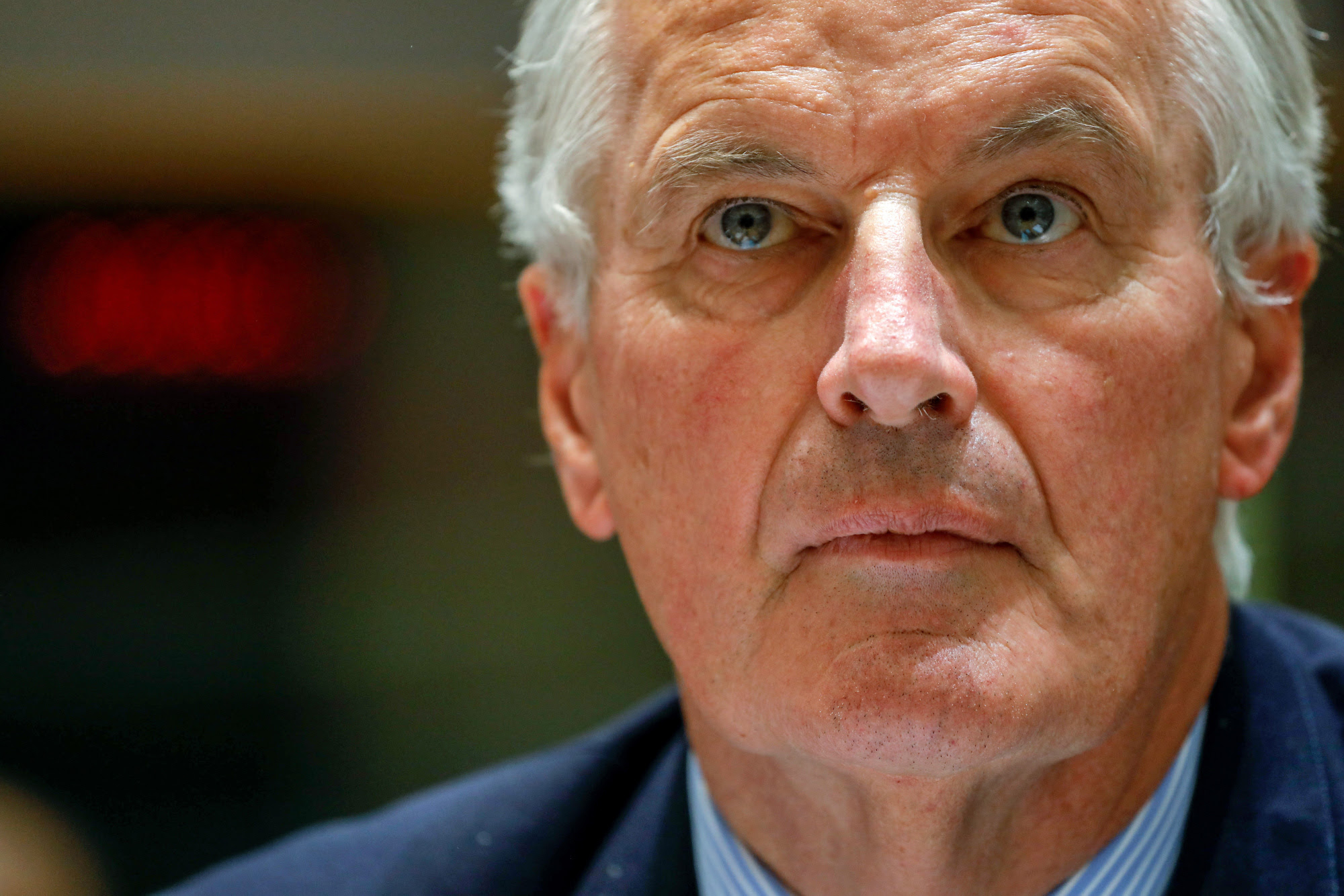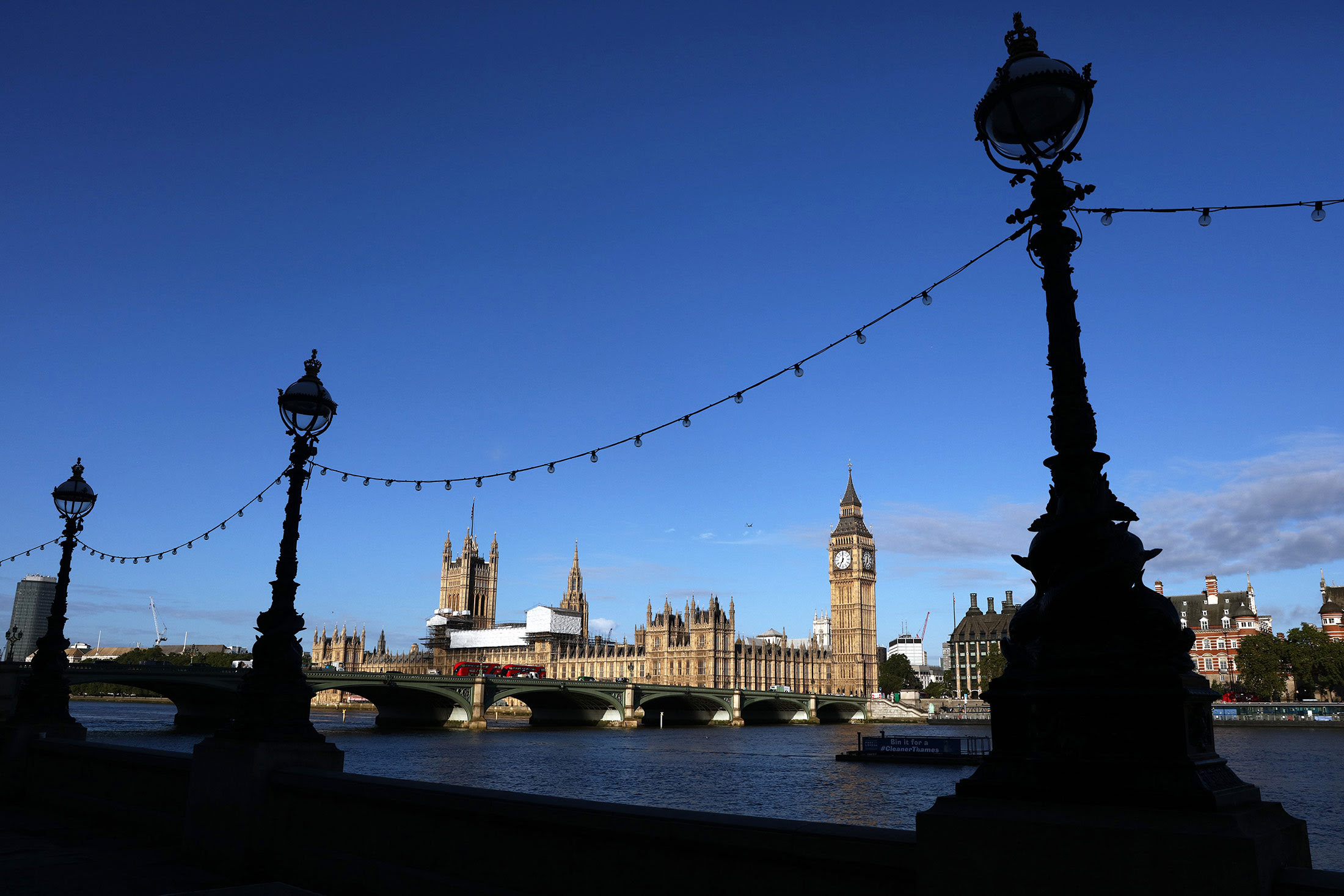Get Serious
The EU’s chief negotiator cast off diplomatic language to start the third round of talks on Monday with a firm rebuke: “We must start negotiating seriously.” Barnier dismissed a raft of recent British policy documents, essentially telling Brexit Secretary David Davis the U.K. has been answering the wrong question. Barnier wants to know the U.K.’s position on how much it’s prepared to pay as a financial settlement when it leaves, Bloomberg’s Ian Wishart reports.
For its part, the U.K. continued to call for “imagination” and flexibility. It still wants to show the EU that the issues of the divorce and the future relationship are intertwined and it makes sense to address them together. The EU has been clear it wants to tackle the U.K.-EU split first, and only then will it agree to talk about the future. Moving on to trade talks was penciled in for October but now looks more likely to slip.
“If the papers question the agreed sequencing, then what we’re actually seeing is a rolling back of progress achieved,” said Carsten Nickel, deputy director of research at Teneo Intelligence.
The U.K. cabinet has only just come to a consensus on what kind of split it wants, with the most enthusiastic Brexit-backers recently persuaded to back Chancellor of the Exchequer Philip Hammond’s call for a lengthy transition period. The opposition Labour Party galvanized the debate at the weekend, saying it will now fight for continued membership of the single market and customs union for up to four years after the divorce.
Read more: What's So Tricky About Transition?
While Barnier says he won’t talk about transition until the main divorce issues are sorted, a transitional arrangement could provide an elegant solution to the bill. According to The Times, British and EU diplomats acknowledge in private that payments made during the transition could count toward settling the total bill, and the U.K. could portray those transfers at home as the cost of a smooth exit.

Japan Trip | Prime Minister Theresa May flies to Japan for a three-day visit, accompanied by a delegation of British business executives. The trip, her first as premier to the world's third biggest economy, is meant to be a reminder of the wider prize for post-Brexit Britain: the ability to strike trade deals with non-EU countries. Japan isn’t so enthusiastic though, the FT reports.
Bank Logjam | The Bank of England faces an administrative bottleneck as almost 80 foreign banks with U.K. branches decide on their future in post-Brexit Britain. They may need to change their status to continue operating after the divorce.
‘Nightmare Scenario’ | The CEO of a 45 billion-euro ($53 billion) pension fund in Finland says the biggest fear over Brexit is its potential to rip Europe’s financial markets apart.
Frankfurt Jobs | UBS expects up to 5,000 new jobs in Frankfurt because of Brexit, Stefan Winter, head of the group’s investment bank in Germany, tells Frankfurter Allgemaine Zeitung.
Chocolate Trade | Bureaucracy and other barriers – not tariffs – are the main concern for exporters navigating Brexit. Bloomberg’s Jill Ward looks at the complexities of trade outside the single market from the perspective of a company that exports Maltesers.
Bloomberg View | The net effect of the Brexit vote and the resulting hullabaloo may just be that the U.K. will simply lose its vote in the EU, argues Leonid Bershidsky. A lengthy transition until a trade deal is secured would mean very little changes in Britain for some time.



Comentarios
Publicar un comentario